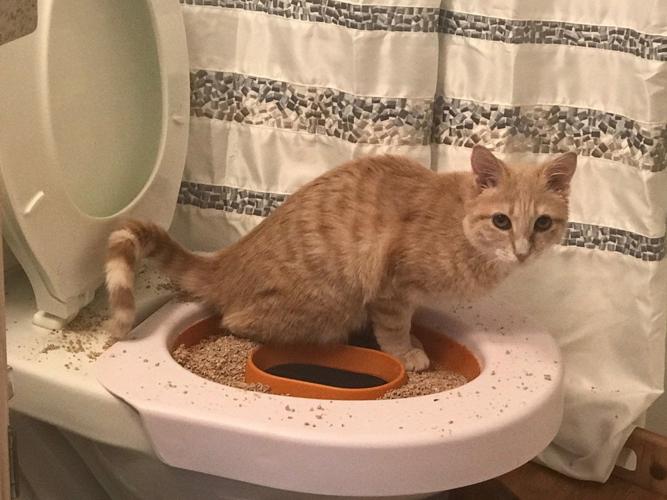Why Flushing Cat Poop Down Your Toilet Isn't a Good Idea - Advice for Proper Handling
Why Flushing Cat Poop Down Your Toilet Isn't a Good Idea - Advice for Proper Handling
Blog Article
Do you find yourself interested in ideas on How to Dispose of Cat Poop and Litter Without Plastic Bags?

Introduction
As cat owners, it's important to bear in mind exactly how we get rid of our feline pals' waste. While it may seem convenient to purge feline poop down the bathroom, this technique can have damaging consequences for both the environment and human health.
Alternatives to Flushing
The good news is, there are more secure and more liable means to deal with cat poop. Take into consideration the complying with choices:
1. Scoop and Dispose in Trash
One of the most usual method of getting rid of cat poop is to scoop it into a naturally degradable bag and throw it in the trash. Be sure to utilize a devoted clutter scoop and get rid of the waste promptly.
2. Use Biodegradable Litter
Choose biodegradable feline litter made from products such as corn or wheat. These trashes are eco-friendly and can be securely gotten rid of in the trash.
3. Bury in the Yard
If you have a yard, consider hiding pet cat waste in an assigned area away from veggie gardens and water resources. Be sure to dig deep adequate to prevent contamination of groundwater.
4. Mount a Pet Waste Disposal System
Purchase an animal garbage disposal system particularly designed for cat waste. These systems utilize enzymes to break down the waste, minimizing odor and environmental impact.
Health and wellness Risks
Along with environmental concerns, flushing feline waste can additionally position health and wellness dangers to people. Feline feces may include Toxoplasma gondii, a parasite that can create toxoplasmosis-- a possibly severe health problem, particularly for expecting ladies and individuals with damaged body immune systems.
Ecological Impact
Purging cat poop introduces dangerous microorganisms and parasites right into the water system, posturing a significant danger to aquatic ecosystems. These pollutants can adversely influence marine life and compromise water high quality.
Conclusion
Liable pet ownership prolongs past giving food and shelter-- it likewise entails correct waste management. By avoiding purging feline poop down the commode and choosing alternate disposal techniques, we can reduce our ecological impact and secure human wellness.
Why You Should Never Flush Cat Poop Down the Toilet
A rose by any other name might smell as sweet, but not all poop is created equal. Toilets, and our sewage systems, are designed for human excrement, not animal waste. It might seem like it couldn’t hurt to toss cat feces into the loo, but it’s not a good idea to flush cat poop in the toilet.
First and foremost, assuming your cat uses a litter box, any waste is going to have litter on it. And even the smallest amount of litter can wreak havoc on plumbing.
Over time, small amounts build up, filling up your septic system. Most litter sold today is clumping; it is made from a type of clay that hardens when it gets wet. Ever tried to scrape old clumps from the bottom of a litter box? You know just how cement-hard it can get!
Now imagine just a small clump of that stuck in your pipes. A simple de-clogger like Drano isn’t going to cut it. And that means it’s going to cost you big time to fix it.
Parasitic Contamination
Believe it or not, your healthy kitty may be harboring a nasty parasite. Only cats excrete Toxoplasma in their feces. Yet it rarely causes serious health issues in the cats that are infected. Most people will be fine too if infected. Only pregnant women and people with compromised immune systems are at risk. (If you’ve ever heard how women who are expecting are excused from litter cleaning duty, Toxoplasma is why.)
But other animals may have a problem if infected with the parasite. And human water treatment systems aren’t designed to handle it. As a result, the systems don’t remove the parasite before discharging wastewater into local waterways. Fish, shellfish, and other marine life — otters in particular — are susceptible to toxoplasma. If exposed, most will end up with brain damage and many will die.
Depending on the species of fish, they may end up on someone’s fish hook and, ultimately on someone’s dinner plate. If that someone has a chronic illness, they’re at risk.
Skip the Toilet Training
We know there are folks out there who like to toilet train their cats. And we give them props, it takes a lot of work. But thanks to the toxoplasma, it’s not a good idea.

We had been made aware of that write-up about How to Dispose of Cat Poop and Litter Without Plastic Bags from someone on our other blog. Are you aware of another individual who is in to the topic? Do not hesitate to share it. Thanks for going through it.
Click Here Report this page